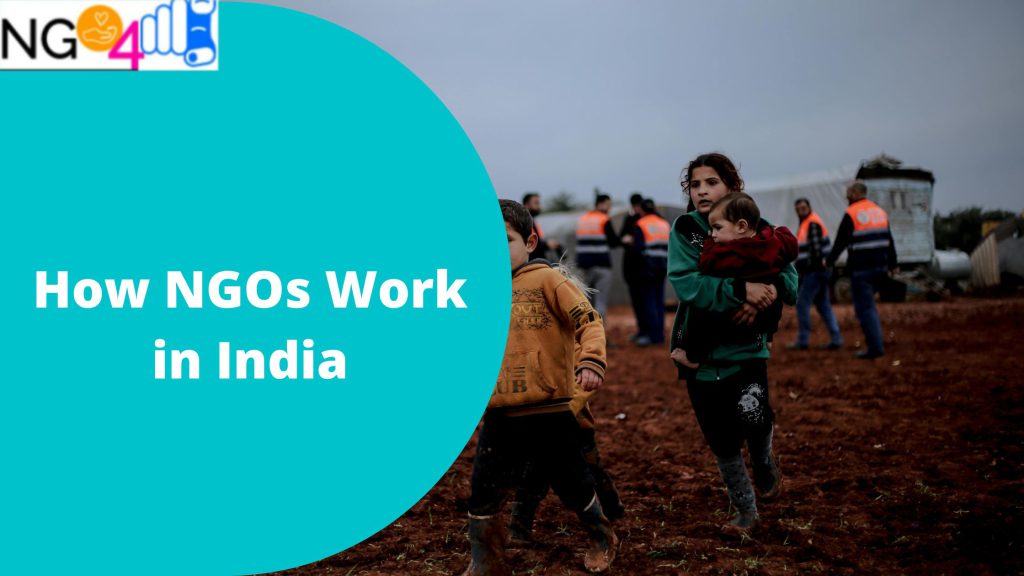Non-Governmental Organizations (NGOs) in India play a vital role in social development, education, health, environmental protection, and human rights. These independent, non-profit organizations operate across rural and urban areas to support government initiatives and fill gaps in public services. In this article, you will read about how NGO works in India.
How Do NGOs Operate in India?
NGOs in India work through community-based projects, public donations, government funding, and international aid. They identify social issues, create awareness, implement programs, and collaborate with stakeholders to create sustainable change. Many also work with volunteers and members who actively participate in fieldwork, administration, and fundraising activities.
Formation & Registration
- Founders draft a constitution or a deed.
- Register under the appropriate legal structure (Trust, Society, or Section 8 Company).
- Obtain a PAN and open a bank account in the NGO’s name.
Funding Sources
- Donations (individuals, corporations, philanthropists)
- CSR Funds (under Section 135 of the Companies Act)
- Government Grants
- International Funding (via FCRA registration for foreign contributions)
Program Implementation
- Identify community needs through surveys or research.
- Plan projects (education drives, health camps, women empowerment, etc.)
- Execute programs with staff and volunteers.
- Monitor and evaluate impact.
Compliance & Reporting
- Maintain accounts and submit annual financial statements.
- File returns to the Income Tax Department.
- NGOs receiving foreign funding must comply with the FCRA (Foreign Contribution Regulation Act).
Key Functions of NGOs in India
- Poverty alleviation
- Women and child welfare
- Education and literacy programs
- Environmental conservation
- Disaster relief and rehabilitation
- Healthcare services in rural/underprivileged areas
- Human rights advocacy.
Challenges Faced
- Funding constraints
- Government regulations (especially FCRA)
- Lack of trained manpower
- Transparency and accountability issues
How to Become a Member of an NGO in India
To join an NGO in India:
- Identify your area of interest (e.g., education, environment, health).
- Research reputable NGOs through directories or platforms like NGO Darpan.
- Apply via their website or contact them directly.
- Submit necessary documents and attend orientation (if required).
- Start participating in their activities as a volunteer or full-time member.
Membership terms vary; some NGOs offer paid positions, while others rely solely on volunteers.
Conclusion
NGOs in India are essential for driving grassroots change and improving the quality of life for millions. Understanding how NGOs work in India and their roles can inspire more people to get involved. Whether you’re passionate about education, healthcare, or the environment, there’s an NGO in India for every cause.
FAQs
They receive funding through donations, grants, CSR initiatives, and international organizations.
Yes, NGOs must be registered as a trust, society, or Section 8 company.
Absolutely. Most NGOs welcome volunteers with or without experience, depending on the role.
Yes, they are regulated by laws like the Societies Registration Act, Companies Act, and FCRA (Foreign Contribution Regulation Act).
Yes, many NGOs operate virtually, especially in education and digital literacy sectors.

